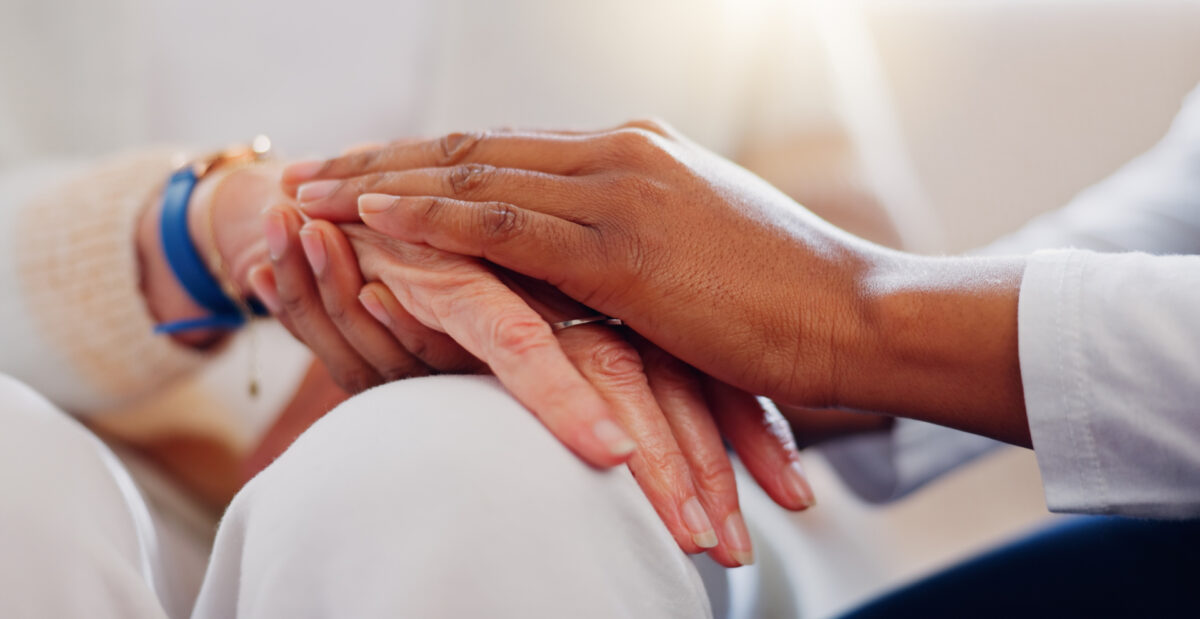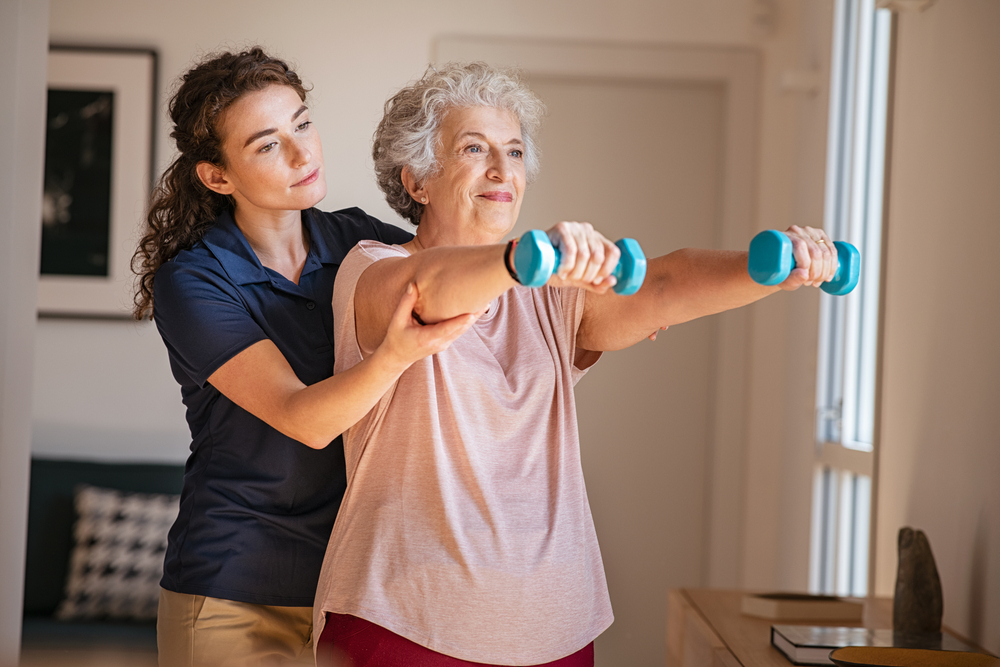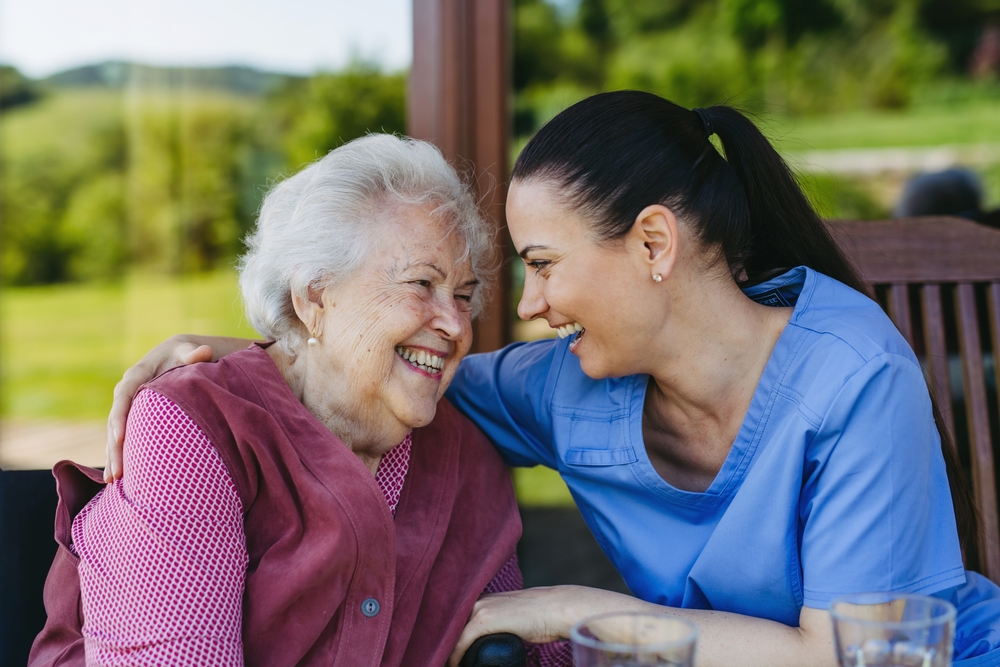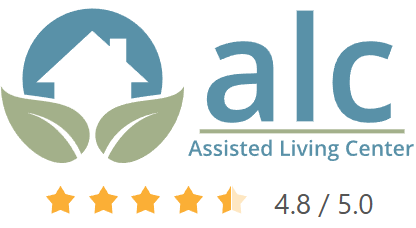
It takes more than just skills and experience to be a senior in-home caregiver. You need a special blend of compassion, empathy, and personality traits that allow you to truly connect with those in your care. Unlike other professions, caregivers delve into the emotional well-being of their patients, offering support and understanding during a vulnerable stage of life. While some individuals may naturally possess these qualities, others can develop them over time through experience and dedication.
Ultimately, there are some core competencies of a caregiver that everyone working with the elderly should strive to embody. Let’s explore the key characteristics that define a truly exceptional caregiver.
What are the top qualities of a caregiver?

Let’s go over the most important qualities that any professional taking care of the elderly should have:
- Patience
Patience is truly indispensable in in-home care. Seniors often have their own pace and ways of doing things, which might require a caregiver to adjust their expectations and approach. It’s easy to get frustrated when things move slower than we’d like, or when instructions aren’t followed.
But a good care provider understands this and responds with empathy, not irritation. They know that flexibility and a calm demeanor are key to providing quality care and building a strong, trusting relationship with their clients. Someone who’s patient will always be open to changes that come with working with people and adapt to them accordingly.
- Trustworthiness
In most cases, an in-home caregiver will be alone with the elderly at home. This means that they will have unlimited access to almost everything in that home. Trustworthiness is a virtue that counts here. There should be a high level of trust between the professional, the patient, and the patient’s family. It’s true that not all professionals are trustworthy, so the one you choose needs to be thoroughly vetted and background-checked.
- Compassion
Being compassionate can be equated to having a tender heart. A caregiver should be sensitive to your aging loved one’s feelings. Having compassion means that the person will be able to have an emotional connection with your aging loved one and this helps them deliver better services.
It’s important to remember that compassion involves balance. Connecting with your client’s feelings is important, but a good provider also knows how to stay grounded and supportive. If they get overly emotional, it can actually make the senior feel more anxious or like they’re a burden. Instead, they should aim to be a calming presence – someone who offers comfort and strength, even when things are difficult.
In fact, paying special attention to the 3 C’s of caregiving: compassion, comfort, and companionship, can significantly help these professionals level up their skill.
- Communication skills
A good caregiver needs to be an effective communicator. They should be able to listen attentively to the instructions given by the elderly, the doctor, and the relatives of the patient. Carefully following instructions is very important, as even a small miscommunication could have serious consequences, such as a medication error.
They should pay close attention to what the client in their care is saying and execute the given instructions accordingly. Should issues arise, they must be able to clearly communicate with both the senior and their family.
- Reliability
Care professionals should be able to carry out their tasks diligently, without close supervision. They should always show up for work on time and reliably execute all the required duties, such as preparing a healthy meal for your elderly loved one if they’re refusing to eat, helping them take a shower, or making sure they take their medication on time. Even if you and the rest of your family don’t live nearby, you should be able to know that your loved one is in safe hands.
- Flexibility
Caregiving rarely goes exactly as planned. A senior’s needs can change from day to day, and unexpected things pop up all the time. Maybe they have a fall, their medication needs adjusting, or they suddenly come down with something. That’s why professionals need to be flexible.
They have to be able to adapt, changing routines and care plans as needed to make sure the senior is always comfortable and well-cared for. A flexible professional rolls with the punches, finds creative solutions to problems, and stays calm and reassuring, even when things get unpredictable.
- Observance
Professional elderly care providers have to pay close attention to their clients. They need to notice subtle changes in how the senior is doing. Maybe they’re sleeping more than usual, eating less, or seem a bit confused. Even small things like a new tremor or a change in their mood can be important clues. When they notice these things and react appropriately, they can help keep your loved one safe and prevent small problems from escalating.
- Respectfulness
People who work with the elderly need to recognize that each of them is an individual with their own unique preferences, values, and life experiences. They should involve your aging loved one in decisions and encourage them to do as much as they can for themselves, especially if the senior has shown some resistance to care.
They understand that something as simple as asking permission before helping with a personal task can make a big difference to a senior’s sense of dignity and self-worth. This makes the whole experience more positive and empowering for the senior.
- Professionalism
Professional caregivers are committed to providing the best possible care. They hold themselves to high standards, always acting ethically and respecting their client’s privacy. They also know that learning is a lifelong process, so they seek out opportunities to develop their skills and stay up-to-date on the latest best practices. This dedication to professionalism not only benefits their clients but also helps build trust and respect for the profession as a whole.
- Positive attitude
A positive attitude can be incredibly powerful, especially when working with seniors who might be facing health challenges or feeling discouraged. A professional who radiates optimism and warmth can brighten their client’s day and create a more hopeful atmosphere.
They encourage their clients to focus on their strengths and find joy in everyday moments, which can make a real difference in their outlook and overall well-being. Once they embody all of these characteristics, they will demonstrate the main strengths of a caregiver that make a significant difference in the lives of seniors.
How to be a quality caregiver?
It goes beyond simply mastering a set of skills. This professional has to cultivate a mindset and approach that prioritizes the senior’s well-being, dignity, and individuality. Here are a few key things to pay attention to:
1. Embrace lifelong learning
The field is constantly evolving, with new research, technologies, and best practices emerging all the time. The best providers are committed to ongoing learning, seeking out opportunities to expand their knowledge and refine their skills. They might attend workshops, read professional journals, or simply stay informed about the latest developments in the field.
2. Practice self-care
Caregiving can be physically and emotionally demanding. To provide the right level of assistance, these professionals need to prioritize their own well-being. This means making time for rest, relaxation, and activities that bring joy and rejuvenation. When they take care of themselves, they can show up as their best self for their clients.
3. Cultivate empathy and compassion
Professionals should strive to understand their client’s perspective, their fears, and their hopes. This empathy guides their interactions and helps them provide truly person-centered services. Care providers have a very important role, since these gestures of kindness and compassion can make a world of difference in a senior’s life.
4. Be an advocate
Seniors may need support navigating the healthcare system, accessing resources, or communicating their needs to family members. A reliable caregiver should be a strong advocate who makes sure their client’s voice is heard and their rights are protected.
5. Find meaning and purpose
This job can be incredibly rewarding. Professionals should embrace the opportunity to make a positive impact on someone’s life. They find joy in the small moments, celebrate their client’s successes, and cherish the unique bond they form with each individual in their care. At the same time, reflecting on what makes you unique as a caregiver can help you bring your own strengths and passions into your work. When they approach this work with a sense of purpose, they will not only enrich the lives of their clients but also experience a deep sense of fulfillment in their own lives.
How do I find the right senior caregiver near me in LA?

At A Better Way In Home Care, we know how important it is to find the ideal professional to take care of your aging loved one. As a mother-daughter agency with more than 25 years of experience in matching families with reliable elderly care providers, we’re your safe and reliable choice.
The professionals we refer possess all the necessary qualities that make great caregivers great. This is one of the best advantages of relying on our referral agency﹘you can rest assured that your loved one will be in safe and capable hands. Whether your loved one needs assistance with daily tasks, medication management, or simply companionship, we can connect you with a professional who meets their unique needs and preferences with top senior care skills.
We can help you find reasonably priced care solutions and services across a wide area and this includes reliable and dedicated senior care in Beverly Hills. Ready to experience the peace of mind that comes with knowing your loved one is safe and cared for? Contact us today.








